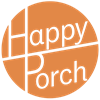Kaer for the World: Air Conditioning as a Service
The switch from selling products to offering product-as-a-service has transformed industries, from music to mobility. For the latest installment of our Circular Economy podcast series, Dave Mackerness from Kaer reveals how the company is disrupting the world of air conditioning, improving efficiency and folding sustainability goals into the bottom line.
After around 60 years in the commercial air conditioning business, Kaer recently transitioned from the traditional model of distributing products and equipment to offering air conditioning as a service. “Our customers were buying something from us that they didn't actually want,” explains Dave. Kaer realized that its customers were not buying air conditioning per se, but the comfortable and cool environment an AC system provides. “So we said, well, if we can sell air instead of selling equipment, that could be a good thing.”
Taking a cue from software companies like Uber and Netflix which use service-based business models, Kaer made the switch – and in doing so rendered its business model more circular. “One of the key things it did was to move the burden of being efficient and circular off of our customers and onto us as a vendor. And that's something that we are much more able to manage, because it's our core business,” says Dave.
For new buildings, Kaer designs, procures and installs the entire air conditioning system; it owns all the equipment, pays for the electricity and water it uses, and the building owner buys air conditioning at a fixed fee or on a pay-as-you-use basis. The real sustainability gains, however, can be made in existing buildings: Kaer buys the assets from the building owner and overhauls the system to make it smaller and more efficient, by harnessing, processing and responding to datasets gathered over 25 years. To make sense of its vast amounts of data, Kaer developed an artificial intelligence platform called BRICS. Launched in 2016, the system can be applied across the company’s entire portfolio, allowing buildings to learn from each other and operate autonomously.
Here’s an example: Under the traditional model, air conditioning for a shopping mall would need to be over-designed to cater to any number of outlier scenarios, such as 100% occupancy or extremely hot days. But with AC as a service, Kaer can use its data-driven technology to more accurately predict the size of system the building will need. And, if any of the outlier scenarios does occur, the building owners can simply increase capacity – just as a smartphone owner might upgrade their data plan.
What’s more, the servitised business model aligns Kaer’s profit to its customer’s sustainability goals. “If we can produce the same amount of air conditioning using less water, less electricity and less manpower, then it allows us to increase our margins,” says Dave. “So we can invest huge amounts of money into software and technology that allow us to provide better levels of service at a lower cost... The business model almost dictates that you take sustainability into consideration because it drives your bottom line, which I think is really powerful.”
Despite its revolutionary impact, Kaer is not protective about its new, circular business model. “We don't only want more people buying air conditioning as a service. We want more people offering products as a service, because we want to use those services and not buy products,” concludes Dave.

